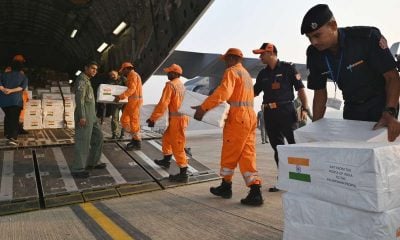Latest world news
Egyptian court sentences 75 to death, hundreds to jail for 2013 sit-in

Latest world news
PM Modi and Netanyahu pledge deeper defence, trade ties during Israel visit
PM Narendra Modi and Benjamin Netanyahu pledged to deepen defence, trade and connectivity ties during Modi’s visit to Israel, with missile deals and IMEC discussions on the agenda.
Latest world news
Canada softens stance on alleged Indian interference ahead of PM Carney’s India visit
Canada appears to ease its earlier allegations of Indian interference as PM Mark Carney heads to India to strengthen trade and strategic ties.
Latest world news
PM Modi reaffirms support for Israel, recalls 26/11 victims in Knesset address
Addressing Israel’s parliament, PM Narendra Modi reaffirmed India’s support for Israel, condemned terrorism, and recalled the 26/11 Mumbai attacks.
-

 Latest world news24 hours ago
Latest world news24 hours agoPM Modi to begin two-day Israel visit, defence and trade in focus
-

 India News15 hours ago
India News15 hours agoMK Stalin predicts frequent PM Modi visits to Tamil Nadu before assembly election
-

 Latest world news15 hours ago
Latest world news15 hours agoIndia eyes Rs 8,000 crore mid-air refuelling aircraft deal as PM Modi begins Israel visit
-

 Latest world news53 mins ago
Latest world news53 mins agoPM Modi reaffirms support for Israel, recalls 26/11 victims in Knesset address
-

 Latest world news45 mins ago
Latest world news45 mins agoCanada softens stance on alleged Indian interference ahead of PM Carney’s India visit
-

 India News34 mins ago
India News34 mins agoPM Modi crosses 100 million followers on Instagram, first world leader to achieve milestone
-

 Latest world news19 mins ago
Latest world news19 mins agoPM Modi and Netanyahu pledge deeper defence, trade ties during Israel visit
-

 India News5 mins ago
India News5 mins agoOver 5,000 tribals join BJP in Assam’s Goalpara ahead of elections












